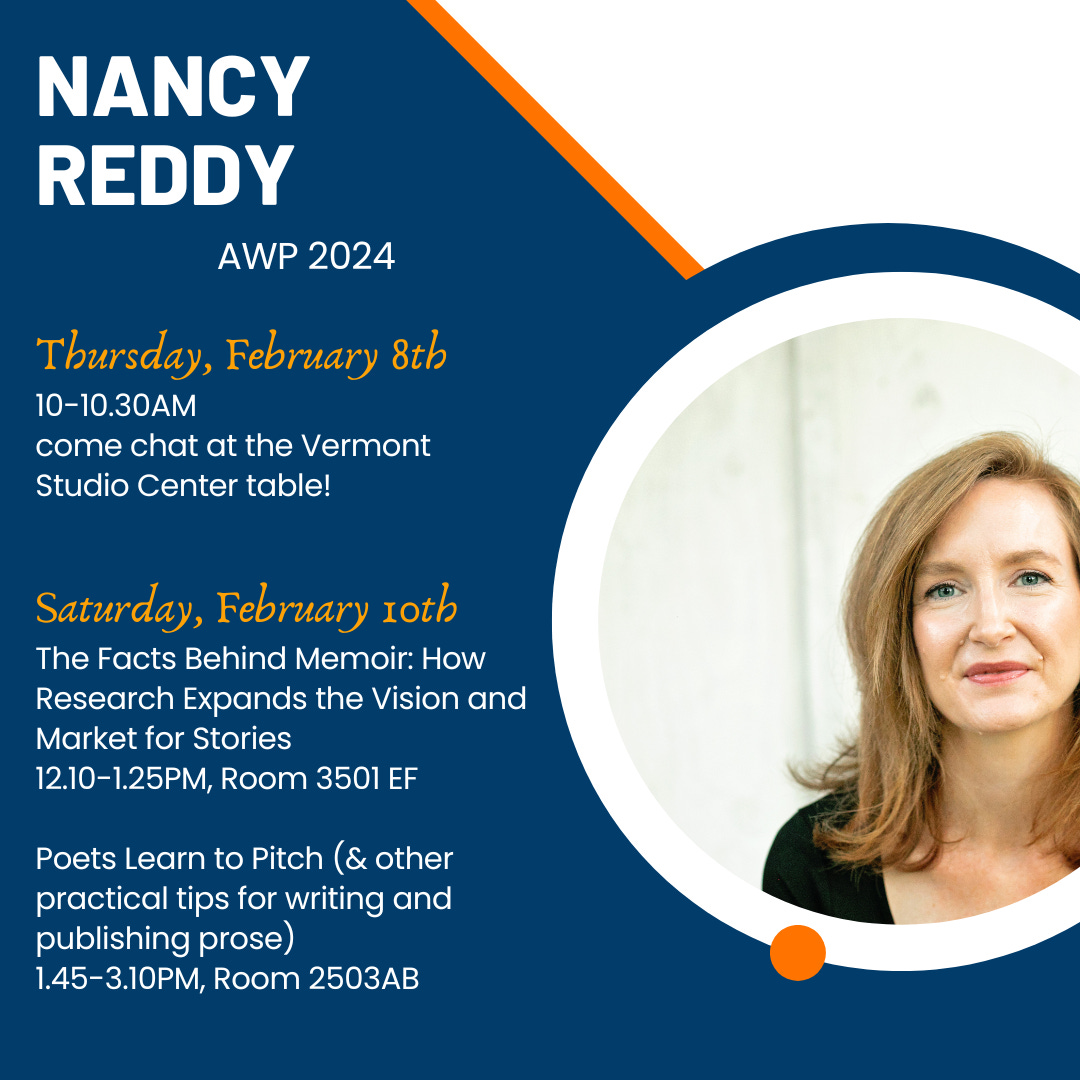let's do a new year's do-over
how tools from narrative psychology can help reframe how you feel about your writing life, learning to ask for help, plus February intentions
Welcome to Write More! This is the monthly intentions email, which goes out the last Sunday before a new month starts. Last month, we talked about harnessing the energy of a fresh start and how to create a vision and a plan for a new year of writing. This month, I’m sharing a couple things I’ve learned recently from narrative psychology that have helped me get unstuck on a couple writing projects.
🌟One thing I’m really looking forward to this month is AWP in Kansas City! If you’re going to be there, I’d love to say hi! Scroll down to the very end for a little graphic showing where you can find me.🌟
I did something twice this week that I’m always encouraging others to do but have a hard time doing myself: I asked for help. As I’ve shared a bit here, I’ve been feeling a little adrift in my writing since sending off the final(ish) draft of The Good Mother Myth late last year. I have a couple deadlines I’m behind on (sorry!) and a bunch of good ideas I’d like to get started on, but I just . . . can’t. I’ve been feeling stuck, and scattered, and just kind of fried. So after spending all of January feeling like I’m just spinning my wheels, I finally decided to ask for help.
I talked to my agent on Wednesday, and she helped me brainstorm a general set of priorities for the year and also reminded that it’s okay to just take a break. (She’s maybe the third person to tell me that this year; I’m trying to listen.) And then, I spent the weekend at a little AirBnB with my best, oldest friend, and when I was bemoaning yet again my feeling of stuckness and how embarrassed I am to be so behind on these deadlines, she asked if I wanted to talk about the project I’m working on, and probably less than 20 minutes later I had clarity about how to move forward, including three small, specific next steps.
It turns out, yet again, that talking about where you’re stuck is often the first step to getting unstuck.

For today’s newsletter, as we think about setting intentions for February, I’d like to offer a couple ideas from psychology that I think can help reframe how we feel about ourselves as writers and, especially, to be a little kinder to ourselves when we’re struggling. The first comes from narrative psychology, which is essentially the idea that the stories we tell about ourselves matter. In a Hidden Brain interview, psychologist Jonathan M. Adler explained it like this:
stories are an amazing tool for holding onto the meaning of our past experiences. The objective facts of our lives are what they are. But the stories are about where we draw connections between things, where we parse the chapter breaks of our lives. And those are narrative acts, not historical acts. And the way we do that can have big implications for our wellbeing.
Adler distinguishes between two kinds of narrative arcs in the stories we tell about our lives: there are redemption arcs, when things start bad and end good, and contamination arcs, where things start good and end bad. In his research, he looks at the way people tell stories of things that have happened to them, and he finds that often times, if we just move the “chapter breaks,” we can tell a different story. So if you haven’t gotten where you wanted in your writing life, or with a particular project, if you haven’t achieved the big victory that would let you name a redemption arc—maybe it’s just that you haven’t gotten there yet.
More broadly, though, that interview helped me to think about the stories we tell about ourselves as writers—and how often that stories can be unkind and unhelpful—and how powerful it can be to draw on self-compassion in reframing our stories. One story I love to tell myself, particularly when I’m struggling with structure or with articulating an idea in a piece, is that everyone else can do that smoothly. Everyone else can fit the pieces of their essay together, everyone else just writes one clear, insightful sentence after another, in a neat line. And I know objectively that’s not true, and even if it were, other people’s writing process has nothing to do with my getting my own work done.
So what I’ve really been working on in the last couple of years is listening to those stories and then consciously reframing them for myself. It’s not that I am uniquely dumb, or that this is the essay where I’ll finally be unveiled as a fraud—it’s that writing is hard, and this is the part where I always feel it’s impossible, and I have lots of tools for moving to the next part. For a long time, when people told me “you’re too hard on yourself,” I took that as a kind of badge of honor, but I’ve finally come to realize that self-compassion is actually a much more effective tool, particularly for a long-term writing practice, than indulging that harsh inner critic. (I love this Hidden Brain interview with Kristin Neff on self-compassion and mindfulness, if you’d like a place to start.)
February Intentions
three questions to consider as you think about your writing life this month:
What stories have you been telling yourself about who you are a writer, and are there ways to make those stories kinder? Is there anything in your writing life you can reframe?
Telling yourself a different story about why you’re stuck or where you’re struggling can make a big difference in your motivation to keep going.
How can you ask for help?
Help can be so many things—everything from sharing a draft and asking for feedback to talking through an idea to enlisting a neighbor in a kid swap so you have more time to write or getting your partner to pick up more domestic work so you can use your brainpower for writing instead of meal planning.
If you’re feeling stuck, how can you make your work smaller?
“Revise that whole review” is, it turns out, too big a task for me to take on all at once right now; I wrote out three small steps to get started, and I think that will point me in the right direction. What small first steps could help you get going on a project?
What are you working on in your writing life this month? What helps you get unstuck? I’d love to know.
on getting unstuck by starting with one small thing
on self-compassion and writing
If you see me at AWP, I’d love for you to say hi! I’ll have lots of Write More postcards and stickers, if you’re interested in those, too.
Write More, Be Less Careful is a newsletter about why writing is hard & how to do it anyway. You can find my books here and read other recent writing here.
If Write More has helped you in your creative life, I’d love it if you would share it with a friend.











This 'headline' is by far the best I've seen in January 2024... Maybe in years :)
I love this Nancy. I fell in love with narrative therapy early on in grad school. There is so much power in understanding how our stories influence our lives. And self-compassion is another incredibly powerful tool. I love seeing this in the context of writing.